Five First Job Financial Tips For Recent College Graduates
Starting your financial journey by securing your first job out of college is an exceptional achievement! There’s nothing quite like watching that first paycheck hit your bank account, but with this achievement comes all new financial responsibilities. So how can you make the most of this moment for years to come? In this blog post we’ll delve into essential financial moves tailored for this exciting journey in your life that will help you kickstart your financial success.
Set Up Direct Deposit
Getting your first paycheck from your first job after college is a big and exciting milestone, but knowing where to put that money is just as important. One of the quickest and easiest ways to receive and store your money is through direct deposit which routes your paycheck directly into your bank account. Direct deposit also allows you to split your paycheck up so some money gets placed into your checking account, and some in your savings account. The best way to ensure you won’t spend your entire paycheck is to ask your employer to direct a percentage of your payment into your savings account — after all, you can’t spend what you don’t have.
Create a Budget
Building a realistic budget is one of the most important financial steps to take as you start earning your first few paychecks out of college. So, where do you start? Well, one of the golden rules of budgeting follows the 50-30-20 method. This means that 50% of your income goes toward needs, 30% goes toward wants, and 20% goes toward savings. Some future financial goals you might want to have some money put aside for include:
Rental or security deposit.
New appliances or technology needs.
A wedding.
Travel plans.
Begin Contributing Toward Your Retirement
Retirement looks different for everyone, but regardless of your retirement plans, the key is beginning early and that means using your first job to help you get started. One of the most common retirement plans often offered by your employer is a 401(k) program. This means contributions are taken from your pre-tax income and invested in the stock market. Consider enrolling a small percentage of every paycheck to contribute toward your retirement, as early investments can grow to be more valuable in the long run.
Create an Emergency Fund
An emergency fund is one of the best ways to prepare for the unexpected in life, especially when it comes to starting out your finances. Saving three to six months’ worth of living expenses places you in a better position to provide a financial safety net you can fall back on in unexpected times including job loss, medical emergencies, major repairs, and more. Saving for unplanned bills is also more likely to help you avoid taking on debt through loans without derailing your financial stability.
Apply for a Credit Card
Building and keeping a good credit score is essential to completing many of life’s milestones including buying a car, renting an apartment, putting a down payment on a house, and more. However, most recent college graduates don’t have a very robust credit history, and since it takes time to build one we recommend starting sooner rather than later. At Greater Niagara FCU, our VISA credit card service is supported by exceptional benefits designed to make your buying experiences better. This includes zero annual fees, worldwide access, purchases that pay you back with ScoreCard® Rewards, and no added costs for cash advances or balance transfers.
Great Achievements Require Greater Financial Management
As you celebrate this professional accomplishment, it’s crucial to remember that your first job isn’t just a stepping stone for your career, but a perfect opportunity to lay down the foundations of sound financial habits. By embracing the lessons of sound saving and mindful spending, you can navigate the exciting path ahead with the confidence that comes from knowing how to make your money work for you.







